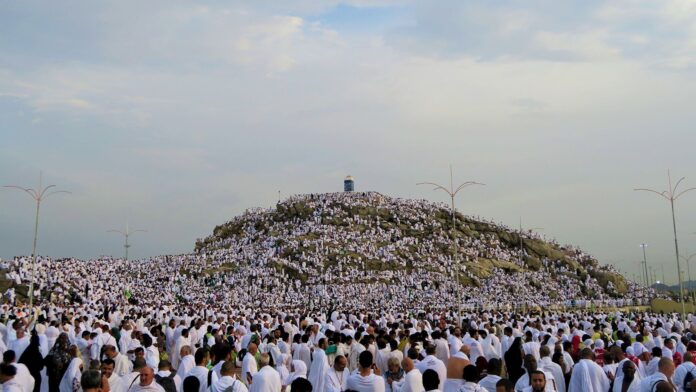Nearly two million Muslims from around the world have converged today on Mount Arafat—also known as Jabal al-Rahmah (Mount of Mercy) to perform one of the most essential rites of Hajj, the annual Islamic pilgrimage.
At dawn, the pilgrims (known as Hujjaj) began their journey from Mina, located about 10 kilometers from Arafat, nestled between the holy cities of Makkah and Ta’if. By midday, the vast plain surrounding the mountain was filled with pilgrims standing in worship, prayer, and deep supplication.
Pilgrims will remain at Arafat from Dhuhr (midday prayer) until sunset, in what is considered the spiritual peak of the Hajj pilgrimage. Scholars emphasize that this day, the Day of Arafah, is a time when sincere repentance is especially accepted and when divine mercy is widely hoped for.
Islamic scholars further highlight that the Day of Arafah is the day when God frees more souls from Hellfire than on any other day of the year, making it an unparalleled opportunity for forgiveness. They encourage all Muslims, whether on pilgrimage or at home, to engage in prayer, reflection, and repentance.
Meanwhile, the Saudi authorities have issued repeated warnings to this year’s pilgrims about extreme heat conditions, urging them to take protective measures. Last year, over 1,000 pilgrims tragically lost their lives due to heat-related illnesses during the Hajj.
As one of the holiest and most emotionally moving moments in Islam unfolds, the Day of Arafah serves as a powerful reminder of unity, humility, and the universal human longing for mercy and spiritual renewal.


